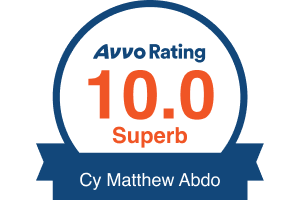Probation, Probation Violations
The sentencing phase of a criminal matter occurs after a person is convicted of a criminal misdemeanor or felony. A conviction means that the party charged with a crime, called the defendant, has been found guilty by a jury or by entering a plea.
The sentencing phase consists of various components including possible punishment (incarceration), probation and rehabilitation. Sentencing does not always mean that the offender will get jail or probation. In some cases, the court may not impose any term of jail or probation, depending upon the circumstances. If no probation is imposed, the offender is discharged from the court system following the sentence date. If probation is imposed, the offender remains in the court system for a specified period. The maximum term of punishment can be imposed if a person violates probation.
The maximum periods of probation that can be imposed are as follows:
- Misdemeanor: 2 years
- Felony: 5 years
- Misdemeanor Stalking: 5 years
- Felony Stalking: Any term of years with a minimum of 5 years
- Certain CSC Felonies: Lifetime electronic monitoring
It is considered a privilege to be granted probation in lieu of jail. Probation allows an offender to remain in society, maintain his household and employment. ABDO LAW has succeeded in obtaining probation for offenders facing extremely serious criminal matters including terrorism, repeat drunk driving, embezzlement and capital (life) offenses.
Reporting or Non-Reporting Probation
When probation is ordered, the court will specify if it is non-reporting or if the defendant is required to report to a probation officer periodically. Reporting probation is known as “supervised probation” and a probation officer will be assigned to the case. Reporting probation may require the defendant to report at intervals of once per month. In extreme cases, a defendant can be required to report bi-weekly or more! Getting non-reporting probation is preferred but not always guaranteed. Reporting probation is almost always imposed for individuals convicted of a felony or that have a substance abuse problem.
Conditions of Probation
While on probation, the court can impose a number of conditions that require strict compliance. Failure to comply with any condition of probation can result in a probation violation. The list of conditions that can be imposed is endless and will depend upon the particular circumstances of each case. The following is a sample of conditions that are imposed:
- Reporting to a probation officer as directed.
- Restitution (payment for losses to the victim).
- Community service.
- House arrest, GPS monitoring.
- Random drug and alcohol testing.
- Attendance of counseling (anger management, substance abuse).
- Out of state travel restrictions.
- Restrictions on operation of vehicle (BAIID device).
- Maintaining or seeking employment.
- No direct or indirect contact with the victim.
Probation Violations
A violation of probation is handled at a special hearing called a probation violation hearing. Prior to the hearing, the defendant is given a report which provides details of the violation(s) and a sentence recommendation by the probation officer. The court is not bound by the sentence recommendation of the probation officer and an attorney may argue for lesser punishment or have a hearing to fight the violation that is unfounded.
Not every violation will result in punishment. Minor violations, such as missing a drug or alcohol test, can usually be explained to avoid punitive measures. However, depending on the court’s policy, even a minor violation can result in the imposition of costs and a weekend in jail. Again, the assistance of an attorney is strongly urged to do damage control in these situations.
The following sanctions may be imposed for someone found guilty of probation violation:
- Continue probation without any punishment.
- Assess costs for probation violation.
- Modify the conditions of probation or extend the period of probation.
- Order a period of incarceration and either terminate or continue probation.
- Revoke special status such as MCL 333.7411 or HYTA.
Getting the criminal defense team at ABDO LAW is encouraged if you are facing a probation violation for a misdemeanor or felony in any district or circuit court.
Motions to Modify or Amend Probation, Termination of Probation
A person placed upon probation can retain a lawyer to file to file a motion for modification or amendment of probation at any time. Once a motion is filed, a hearing is scheduled before the sentencing judge. The goal in filing a motion for modification or amendment of probation is to gain freedom for our clients. Our successful motions and requests for modification or amendment of probation have included the following:
- Termination of alcohol and drug testing.
- Converting reporting probation to non-reporting probation.
- Allowing permission to travel out-of-state without requesting permission.
- Early termination of probation.
We understand that being on probation, or having anything to do with the court system, is a restriction on a person’s freedom and mobility. It is always our goal as your criminal defense lawyers to obtain the shortest possible period of probation with a limited amount of conditions. As we say to our clients:
Hire us to get you out of the system, not keep you in it!
Avoid Jail and Retain HYTA or 7411 Status
All aspects of probation are serious legal matters. ABDO LAW has the experience and gets the best possible results for clients faced with probation violations or that need an experienced Macomb County criminal defense attorney to file a motion to modify or amend the terms of probation.
CALL Abdo Law for a FREE CONSULTATION
Phone messages after business hours are forwarded to our attorneys. We offer same day, evening, weekend appointments and the ability to retain us over the internet. Payment plans and all credit cards accepted.
CALL: Metro Detroit: 586-412-5555




















